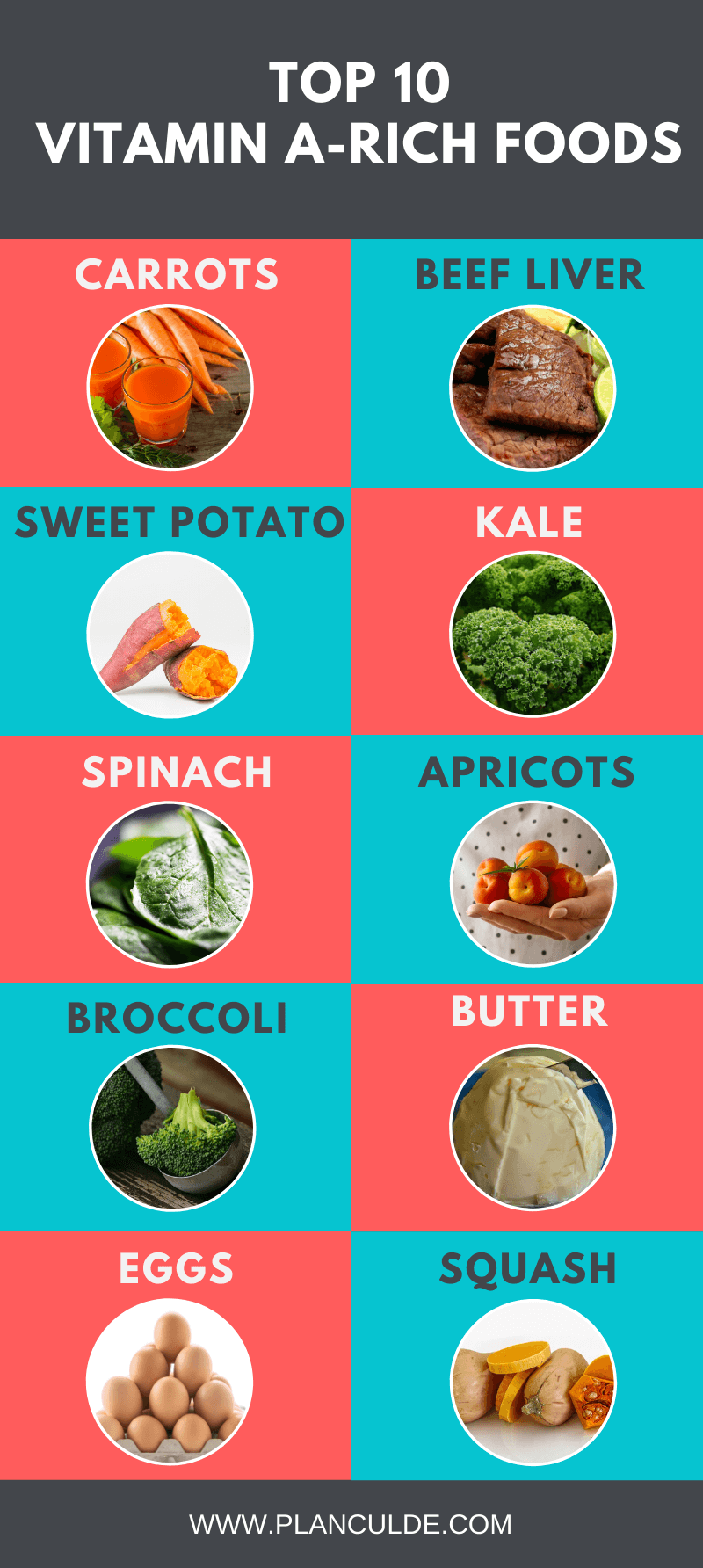Last Updated on August 6, 2021 by Nick J-Pepe
Vitamin A is a vitamin that is fat-soluble and essential for maintaining neurological function, healthy vision, and healthy skin. Someone who suffers from a deficiency in vitamin A will usually end up with night blindness that could lead to thickening in the cornea and even blindness. There are a few vitamin A foods that are very high in the vitamin.
People that are at risk for a deficiency in vitamin A will include alcoholics that have excess toxicity in the body that lowers the levels of vitamin A. Additionally, people who have long-term problems with malabsorption of fats will usually have vitamin-A deficiency.
The Most Common Health Problems that Can Lead to Malabsorption Include
- Leaky gut;
- Gluten sensitivity;
- IBS (Irritable Bowel Disease), Ulcerative Colitis or Crohn’s Disease;
- Disorders of the pancreas.

Vitamin A will also play a significant role in keeping the bones nice and healthy, clear skin, gene regulation, immune function, and cell differentiation. You will usually find it in two different forms, with one being active vitamin A and the other being beta carotene.
Usually primarily found in plants, beta-carotene must be converted into active vitamin A for the body to be able to use it. The recommended daily allowance for vitamin A is 900 mcg per day for men and 700 mcg per day for women, with the current daily value being 5000 IU.
List of the Top 10 Vitamin A Foods
- Carrots – 1 cup raw, sliced / 21,384 IU (over 100% DV)
- Beef liver – 3 ounces / 14,363 IU (nearly 3x DV)
- Sweet potato – 1 whole / 18,443 IU (over 100% DV)
- Kale – 1 cup, chopped / 6693 IU (over 100% DV)
- Spinach – 1 cup, raw / 2813 IU (56% DV)
- Apricots – 1 fruit / 674 IU (13% DV)
- Broccoli – 1 cup, raw / 567 IU (11% DV)
- Butter – 1 tablespoon / 355 IU (7% DV)
- Eggs – 1 extra large / 302 IU (6% DV)
- Winter squash – 1 cup, cubed / 514 IU (10% DV)
Vitamin A offers significant benefits for the eyes, hair, and skin.

Immune Support
Vitamin A is known for having immune-boosting properties because there are several functions of the immune system that depend on sufficient levels of vitamin A.
The genes that are involved with the immune system are regulated using vitamin A. Any deficiency in this vitamin can lead to more infections and an immune system that is weakened.
Beta carotene is also a potent antioxidant that can help with boosting the immune system and the prevention of a range of chronic illnesses.
Vision Support
Whenever light shines on the retina in a human eye, there is a molecule known as rhodopsin that gets activated. The rhodopsin that is activated sends out a signal to the brain resulting in vision. Vitamin A plays a crucial role in the rhodopsin molecule, which is why any vitamin-A deficiency could lead to night blindness.
The form of vitamin A that is found in plants is known as beta carotene, which plays a role in the prevention of macular degeneration, which is the leading cause of age-related blindness.

Cell Growth and Skin Health
Vitamin A is necessary for supporting skin cells, both on an internal and external level. You need vitamin A to help form glycoproteins, which are a combination of protein and sugar.
They work to help cells bind together as they form soft tissues. Because of this function, vitamin A is needed to heal wounds and regrow skin.
Vitamin A is something that is essential to skin health, and any deficiency can cause a poor complexion. Studies show that consuming the foods that are listed, which are rich in vitamin A, can improve your overall skin health.

